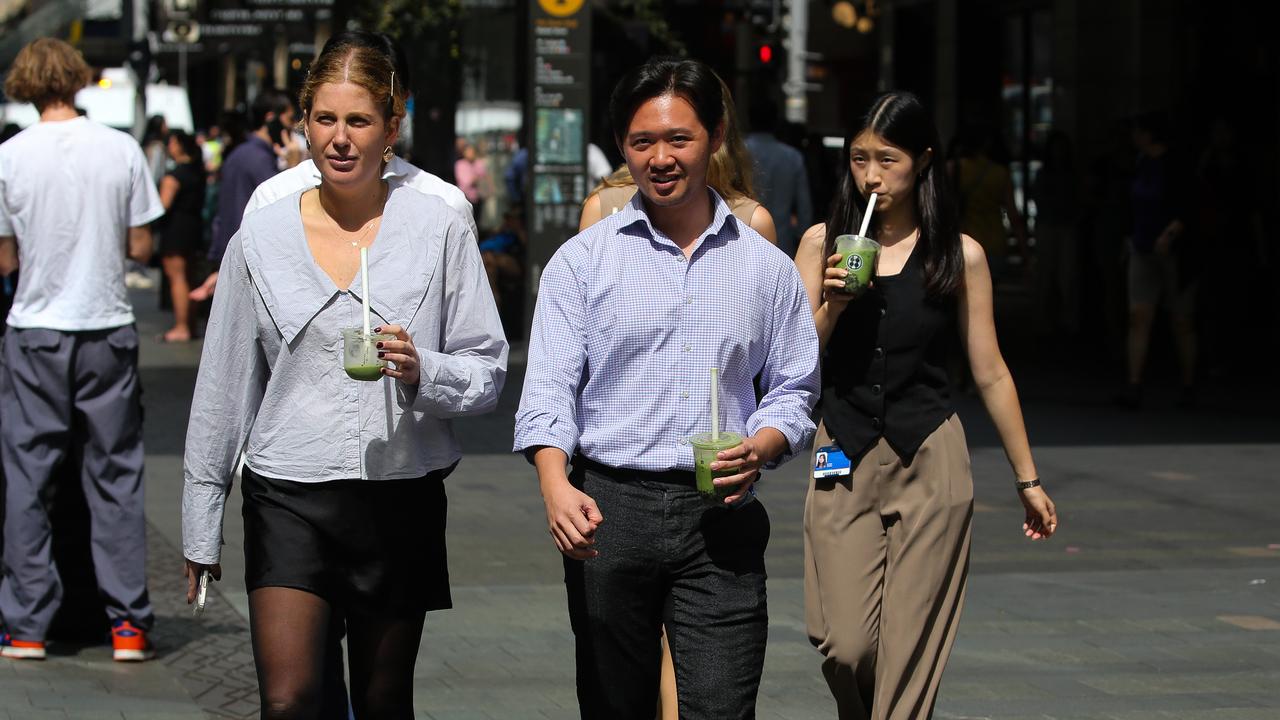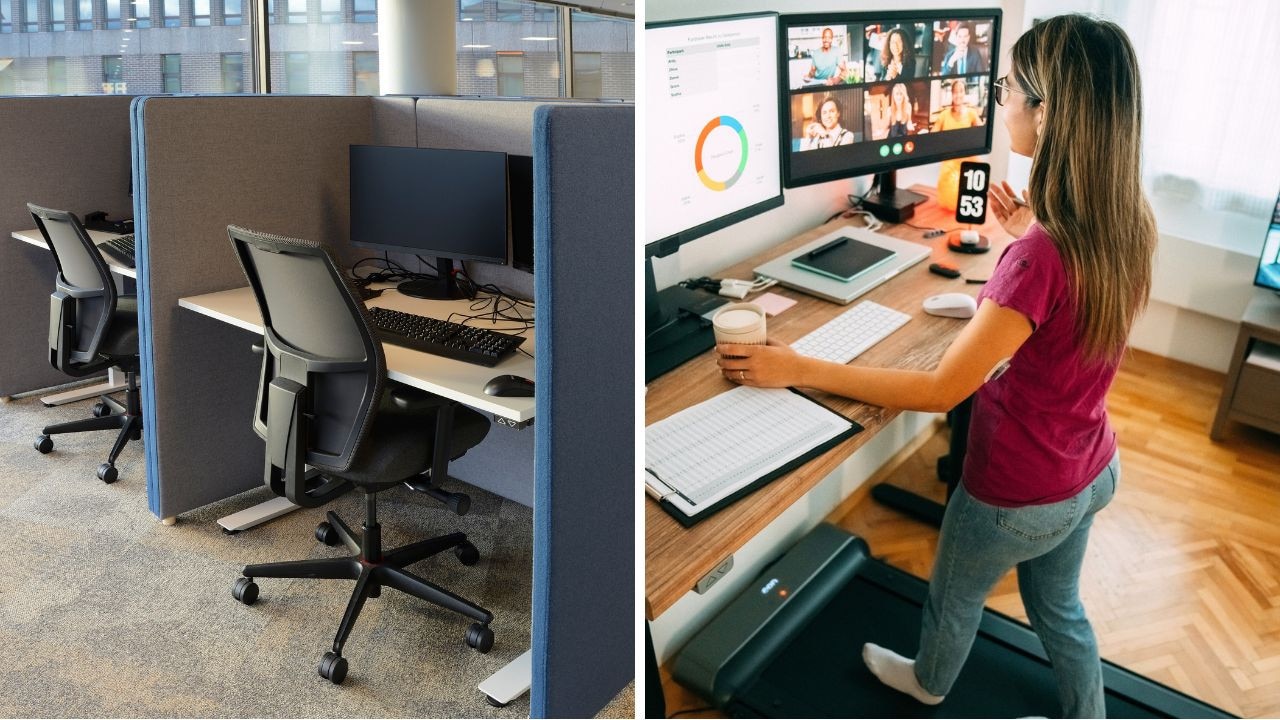PwC named Australia’s Top Company to work for by LinkedIn
A RADICAL change to this company’s notoriously draconian office rules transformed it into our most popular employer.
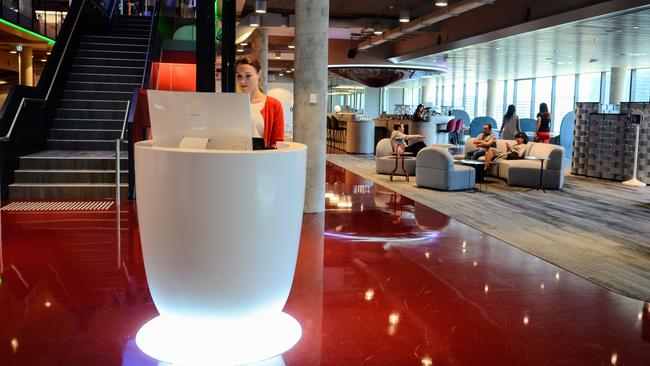
Careers
Don't miss out on the headlines from Careers. Followed categories will be added to My News.
MEDITATION rooms, flexible hours and casual clothing: it’s all part of working for a big corporation in 2017.
Even Australia’s most conservative employers are taking their cue from the tech industry by throwing out the old rule book for workplace decorum, allowing staff to come and go as they please, and wear what they want.
It’s how professional service giant PricewaterhouseCoopers — which until recently was known for its draconian dress code — came to be ranked number one on LinkedIn’s Top Companies list, released on Wednesday.
The global firm made headlines last year when it sent a London staffer home without pay for not wearing heels to work.
Its former, admittedly “outdated” workplace apparel rules demanded that male employees wear suits, ties and business socks, while women had to don “tailored” trousers or dresses and “business-style shoes or boots”.
These days, staff are free to dress in whatever way makes them feel “comfortable and confident” for the day’s activities, with jeans and sneakers a perfectly acceptable choice for a day at the office — and it’s upped their appeal to job seekers.
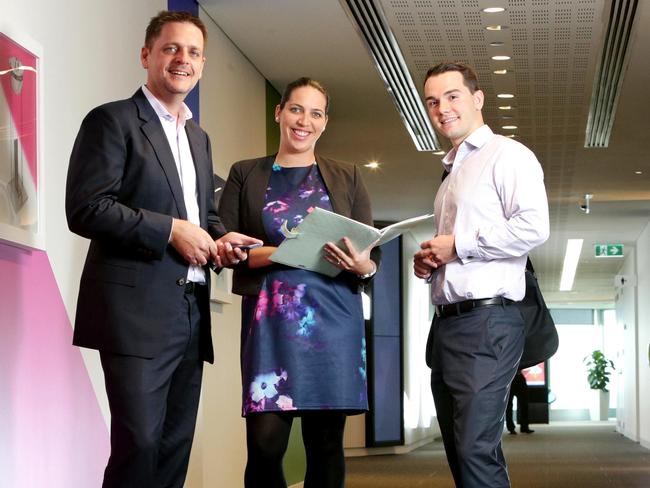
At the company’s new waterfront HQ at Barangaroo in Sydney, there are plenty of suits and ties on display when news.com.au visits.
But there are signs of a workwear revolution in the breakout meeting spaces that can be found throughout the airy, light-filled office, especially among younger employees.
Sneakers, ripped jeans and edgy haircuts take their place alongside more conservative attire, with those staff members hosting client meetings more likely to dress up.
Sue Horlin, PwC’s managing partner for human capital, said the new clothing rules were a powerful symbol of the firm’s culture.
“We hire super smart people to do really hard jobs, and I don't think they need an organisation to tell them what to wear every day,” Ms Horlin told news.com.au.
“It’s not a dress up or down policy; it’s just ‘get up in the morning and think about what you’re doing that day and dress so you feel comfortable and confident’.”
The new rules came into effect a year ago, and the company has transitioned its east coast employees into updated offices in the same time frame.

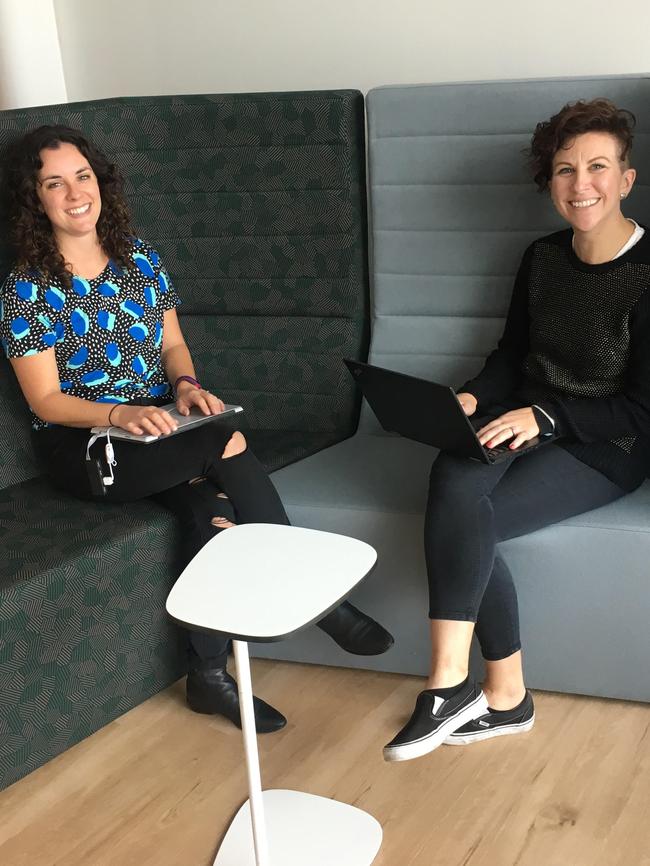
Walking around the building, it feels more like a trendy hotel than a bean counter’s haven.
A smartly-dressed man with a full beard stands at the front desk, against the backdrop of a green-planted feature wall.
Staff arriving for the day tap on touch screens to discover which space their team members have decided to work from — assigned desks being a thing of the past, of course.
Baristas hand out free coffee and there’s an open window looking into the kitchen of the in-house restaurant.
Treadmill meetings, ping pong tables and “activity based working” have been introduced in a bid to foster creativity.
“We wanted to make it a fun, energising open place to work and create an environment to let people show up and work how they want to,” Ms Horlin said.
There’s a library where mobile phones and talking are banned, for those who wish to eliminate distractions, while vast open-plan collaboration floors are littered with whiteboards and movable dividers set up as makeshift meeting rooms.
It’s an approach that draws inspiration from the tech companies that make up part of the firm’s clientele — and aims to lure talent that might otherwise go to work for Apple, Google or one of the big banks.
‘SMALL PERKS ADD UP’
Employees at PwC enjoy floating public holidays, allowing them to switch their day off to another date. Even better, no one at the firm is expected to work on their birthday.
New employees are assigned a buddy to help them settle in, and managers get $1200 a year to spend on the development opportunity of their choosing.
Performance is based on “outputs, not inputs”, Ms Horlin said, with more than half of staff members take advantage of PwC’s work-from-home policy. Employees’ comings and going at the office are not monitored, she said.
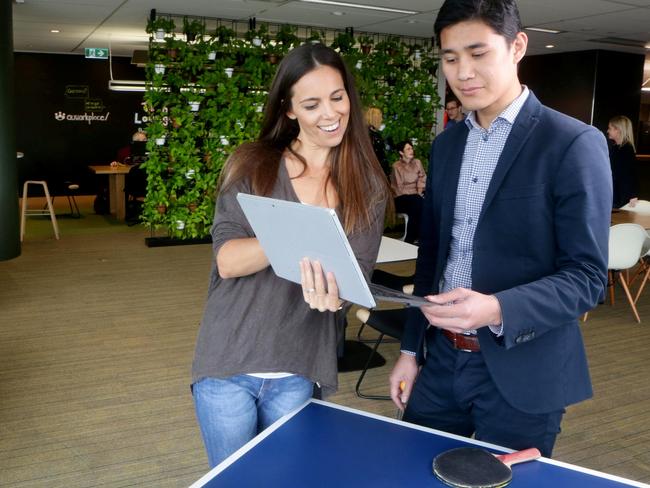
LinkedIn Australia’s director of talent Jason Laufer said financial services firms were looking to create “a sense of belonging and fun” in order to secure the best talent.
We know that a company’s culture and purpose are key drivers for attracting great talent, but also retaining employees,” Mr Laufer said.
“It definitely helps when organisations offer these small perks, because they all add up to create strong employer brand.”
The corporate social media giant ranks Australian companies on their popularity with job seekers on the platform, with LinkedIn’s algorithms taking in job seeker reach and engagement, plus data on employee retention rates.
AUSTRALIA’S TOP COMPANIES
Here are the top ten, courtesy of LinkedIn:
1. PwC AUSTRALIA
The global accounting powerhouse’s 7000 employees enjoy perks like wellbeing programs, with meditation spaces and treadmill meetings, along with flexible scheduling so employees can choose how, where and when they work. Company policy says no one has to work on their birthdays.
2. KPMG AUSTRALIA
The professional services firm has revamped its hiring experience, using video interviews, “gamified psychometric assessments” and appraisals of emotional intelligence. Its 6500 employees decide on the work style and hours that fit best for them and are free to sit wherever they do their best work. The firm has an active pro bono and volunteer program.
3. WESTPAC GROUP
The bank’s new Barangaroo office features flexible working spaces, a wellness centre, a barbecue area and outdoor terrace, with bike storage and showers for active commuters.
4. COMMONWEALTH BANK
The bank’s office in Sydney’s Darling Harbour features rainwater harvesting and reuse, generating half the greenhouse gas emissions of an average commercial office building. It has taken action on workplace diversity targets.
5. WESFARMERS
Wesfarmers employees 200,000 people across its businesses, which range from mining to supermarkets, office supplies and liquid petroleum, making it one of the nation’s largest companies by both revenue and headcount.
The company is a long-time benefactor of the arts, donating millions to creative organisations and sponsoring young opera singers to train and perform with the West Australian Opera.
6. QANTAS
Australia’s national carrier isn’t afraid to stand up for issues it cares about, like same sex marriage, and training senior managers in diversity best practice.
Its 26,000 employees include many former cabin crew and pilots who have moved into corporate roles. Perks include tickets to events like the Australian Olympic team’s homecoming and the Tropfest film festival.
7. CIMIC GROUP
International contractor CIMIC Group has interests in telecommunications, engineering and infrastructure, building and property, mining and resources, and environmental services. Its companies have won contracts including deals to expand Hong Kong’s international airport and build India’s first Ikea. This year, the company ranked as a top graduate employer by GradConnection and Australian Association of Graduate Employers. It has 51,300 global employees.
8. DELOITTE AUSTRALIA
Consulting firm Deloitte is Australia’s biggest private sector employer of graduates and interns, hiring more than 1000 each year. The company offers wellness perks like Tai Chi Tuesdays to its 7000 local employees, and recently launched its 20-week return to work program.
9. MACQUARIE GROUP
Home to award-winning office spaces, financial group Macquarie offers its 6200 employees perks like on-site skin cancer checks and vaccinations. The bank also puts on sports clinics for children across the country in cricket, netball, rugby and more.
10. TELSTRA
Thanks to the company’s “all roles flex” policy, each of its 33,000 employees is afforded some level of flexibility, whether that means working custom hours or from different Telstra locations globally. The telecommunications and media company now demands that recruitment and interview shortlists include at least 50 per cent female representation.
For the full list, visit LinkedIn.
Originally published as PwC named Australia’s Top Company to work for by LinkedIn


